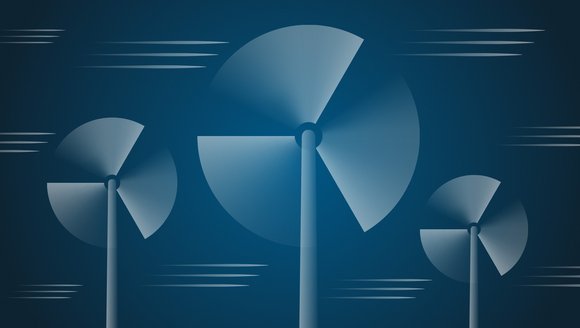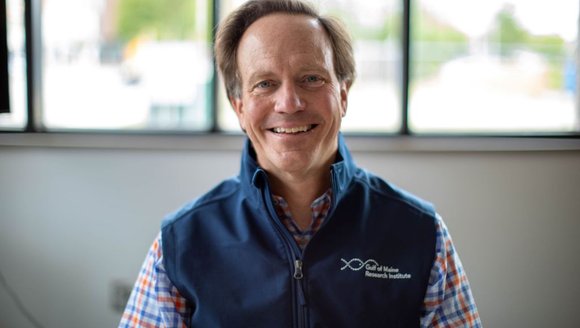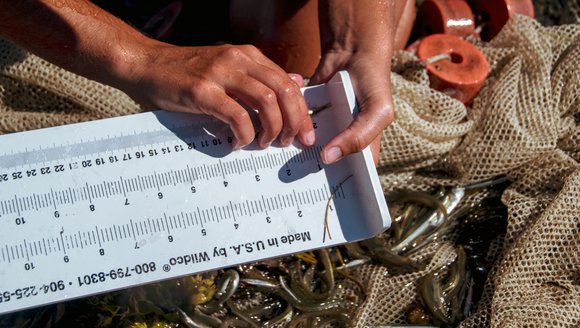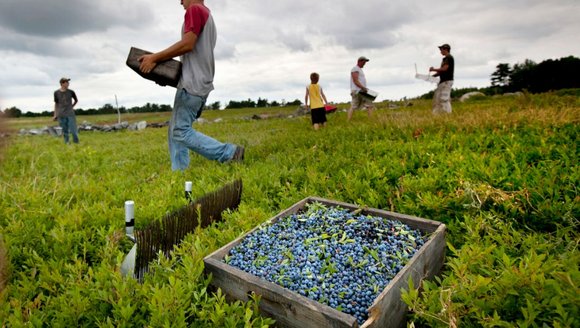Offshore Wind Program
We bridge gaps between agencies and communities invested in the Gulf of Maine offshore wind development process.
There are a diverse mix of stakeholders invested in offshore wind development in the Gulf of Maine — each with their own interests, perspectives, motivations, and knowledge. We will provide interested stakeholders with the best available information about the risks, opportunities, and uncertainties associated with offshore wind development. Our program will build capacity for all interested parties with unbiased, up-to-date information and resources.
Program Goals:
- Support an offshore wind development process that considers and responds to the needs of coastal communities.
- Ensure all interested constituencies have access to comprehensive information to engage constructively in the development of offshore wind.
- Lend our expertise on relevant fisheries and marine topics to local, state, and national decision making.
- Implement research and monitoring to evaluate the impacts and assess the opportunities of offshore wind on the Gulf of Maine ecosystem and marine users.
Offshore Wind Projects
Explore our range of offshore wind work below.
-
![Expert Advice for Sustainable Offshore Wind Development]()
Expert Advice for Sustainable Offshore Wind Development
GMRI staff and researchers hold expertise on relevant fisheries and marine topics to inform the responsible and sustainable development of offshore wind in the Gulf …
-
![Offshore Wind Resource Hub]()
Offshore Wind Resource Hub
This resource hub will offer diverse stakeholders unbiased and current information and tools to help them contribute constructively and effectively to discussions about offshore wind …
-
![Working Toward Coexistence: Fisheries and Offshore Wind in the Gulf of Maine]()
Working Toward Coexistence: Fisheries and Offshore Wind in the Gulf of Maine
This project helps improve our understanding of how fishing activities will interact with floating offshore wind, and explores approaches for these industries to coexist alongside …
-
![Baseline Monitoring in the Research Array]()
Baseline Monitoring in the Research Array
We will collaborate with other state researchers to monitor the baseline pelagic ecosystem within the Gulf of Maine Offshore Wind Research Array (Research Array). We …
-
![BOWLINE: Baseline Offshore Wind Livelihood Impact Needs Exploration]()
BOWLINE: Baseline Offshore Wind Livelihood Impact Needs Exploration
This project helps improve our understanding of potential social, economic, and cultural impacts of floating offshore wind development on Maine’s fishing communities.
The Gulf of Maine Research Institute’s mission is to develop and deliver collaborative solutions to global ocean challenges. Without a doubt, climate change is the foremost ocean challenge of our time, and we believe offshore wind can be a solution to the climate crisis — but process matters, and climate solutions that don’t consider the needs of stakeholders aren’t solutions at all. Offshore wind creates immense economic opportunity, including new jobs, investment, and tax revenues. But to realize these opportunities, the development of offshore wind must acknowledge, recognize, and respond to the Gulf of Maine’s cultural, ecological, and economic significance.
For offshore wind to be a true solution for the region, the complicated development process must include both science-informed decision-making and effective stakeholder engagement. This approach necessitates collaboration between local and state governments, coastal communities, scientists, and tribes. Constructive stakeholder engagement can minimize and mitigate conflicts that could either harm coastal communities or halt the development of offshore wind.
We recognize the rapid pace of offshore wind development and want to make certain that important community perspectives are not overlooked. A process that includes stakeholders representing their interests early and often can help the region address the greatest long-term threat to our marine economy: climate change.
GMRI is an independent, objective nonprofit research institute with decades of experience supporting fisheries-dependent communities to engage effectively in fisheries management. Given our interdisciplinary expertise, skills, and relationships with these communities, GMRI is well prepared to bridge gaps between government agencies, fishing communities, eNGOs and others invested in the Gulf of Maine’s offshore wind development process.
We will provide all interested constituencies with the best available information about the risks, opportunities, and uncertainties associated with offshore wind development in the Gulf of Maine. With this approach, we will provide a wide range of stakeholders with unbiased, up-to-date information and resources — equipping them to weigh in on offshore wind-related matters affecting their livelihoods and well-being.
Our activity in this space includes lending our expertise to serve advisory roles for offshore wind development; characterizing the consequences and opportunities of offshore wind development in coastal and marine environments; and supporting coastal communities to engage in offshore wind development by providing science translation, establishing connections between communities and decision-makers, and translating fisheries knowledge into data. For a more comprehensive description of our perspective on and role in offshore wind please read our white paper.








